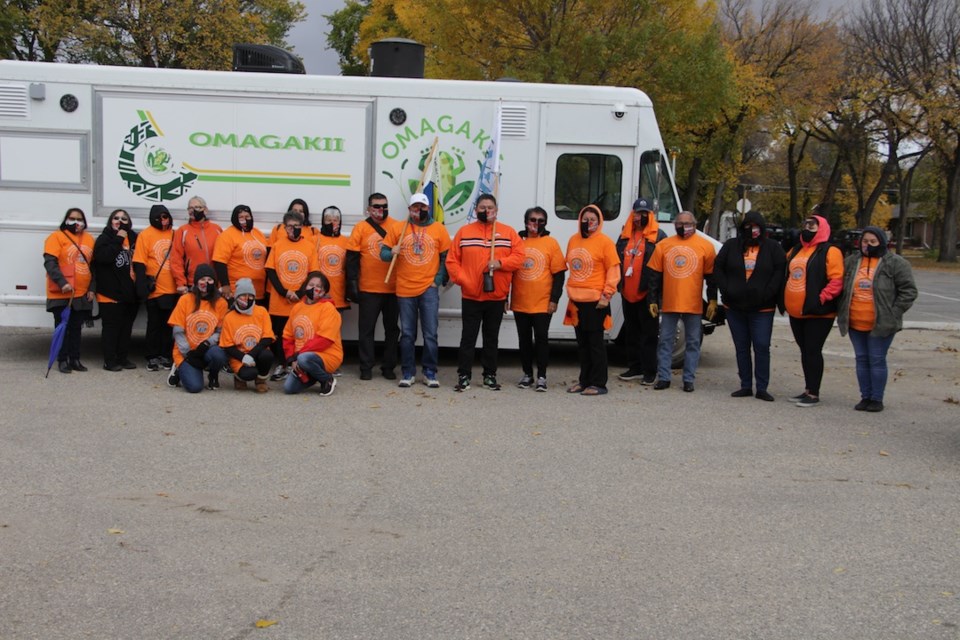Walking down Yorkton streets, the Yorkton Tribal Council wants to educate. Decked out in matching orange shirts, along with matching masks, a group commemorated Orange Shirt Day, and honoured the children who went through the Indian Residential Schools. The annual walk aims to educate people about the abuses that went on in the schools, in the spirit of reconciliation.
Orange Shirt Day began as part of the St. Joseph Mission (SJM) Residential School (1891-1981) Commemoration Project and Reunion. Phyllis (Jack) Webstad told the story of her first day at the residential school, when she had her orange shirt, given to her by her mother, taken away from her. Her story opened up an opportunity to open a discussion on the effects of Residential Schools and the legacy they have left behind.
Organizer Iris Acoose said that they wanted to celebrate the resilience of their people, recognizing the trauma children endured, and give a chance to learn more about what happened.
This year the walk was smaller than usual due to COVID-19, with only YTC staff taking part. The main challenge, said Acoose, was ensuring they were meeting all health regulations, both from the Saskatchewan Health Authority and the YTC. They were able to have a pipe С����Ƶ to begin the day, and still hold the walk.
One of the goals of the day is to be as visible as possible, Acoose said, because the orange shirt is an opportunity to educate.
“People in Canada, they know nothing about the Indian Residential Schools, they don’t know about the impact that the Indian Residential Schools had on our people, along with the other historical factors that impacted our people.”
Acoose said that the other positive from Orange Shirt Day is the opportunity to see leaders in the community support the project. She noted that the Yorkton Tribal Council, including Tribal Chief Isabel O’Soup, and Director of Health Ivan Cote, have been supporting the project.
“It’s important that our people come together.”




